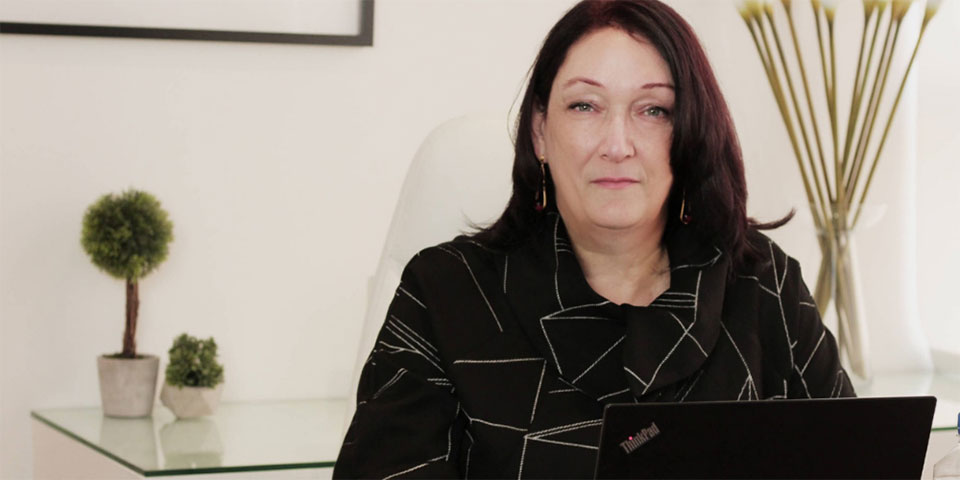The future of work: What workplace trends are on the rise?

As we’re approaching better times ahead, employers are planning for the future of work. There are a lot of questions and conversations surrounding workplace trends and how organizations plan to move forward.
Prior to the pandemic, there may have been employers who were reluctant to initiate a work-from-home culture/policy for several reasons. One of them being that it was difficult to fully trust that employees were capable of being productive with all the distractions at home – i.e. kids, pets, electronics, etc. At the office, managers are able to physically see their staff in the office, at their desks, doing their job, reassuring them that they were getting the job done. There was also the notion that in-person meetings and collaboration were invaluable and could not be done remotely.
However, once the initial stay-at-home order hit back in March 2020, employers were forced to quickly adapt to a whole new way of working while equipping their teams with a home office setup. The result – employees continued to be just as, if not more, productive from the comfort of their own home. The pandemic completely changed the notion of the office and changed the mindsets of both employers and employees.
Workplace trend: Work-life balance
The pandemic has created a shift where a flexible work-life balance has now become the norm, making it imperative for a company to prioritize and integrate it into the company’s culture as we transition through the return-to-workplace period.
During the pandemic, employees started to observe the things they value most, in not just a workplace, but also in the quality of life that was available to them at their current company. Over the past two years, we’ve seen a mass number of employees switching careers/jobs and this is a big indicator of this. With more employees re-evaluating their current job and looking for alternative opportunities that suit their work-life balance needs, HR professionals are finding it a particularly difficult time recruiting and retaining top quality talent.
Now more than ever, employees are more focused on working for an organization that matches their values so employers will have to work harder to engage their employees and attract new talent. With this in mind, one of the workplace trends we can expect to see is companies being more creative in their offerings to employees, such as the opportunity to work somewhere abroad for a period of time where the employer could potentially subsidize the cost. In addition, 4-day workweeks look to be another offering that may become available to employees in the future. Companies like Bolt, Buffer and G2i are trialing or already started offering a four-day workweek to their employees, which has shown positive results in employee productivity and retention, as finding work-life balance becomes increasingly important over time.
Workplace flexibility
In order to retain employees during a return-to-workplace transition, employers will need to create a plan that takes into account both the needs of the business and those of the employees, allowing for accommodation – within reason. A 2021 report from Accenture revealed that 61 per cent of Canadians prefer a hybrid or remote work model, so if the business is able to work within these structures, this would be a reasonable accommodation to ensure talent retention.
For the future of work, one of the trends that employers should take note of is “flexibility”, in all its forms. For instance, the one-size-fits-all approach will no longer work as employees have proven their capabilities without being at the office from 9 to 5 and under constant surveillance. However, while there are a number of employees who prefer working from home, there are also those who look forward to returning to the office where they can have a separate space from their personal life. That’s why, as organizations begin to navigate the office return, employers should remain flexible in various approaches to ensure their employees are satisfied with the decision and company policy. Employers should have the ability to offer employees a choice of onsite, hybrid or fully remote while maintaining the work of the business. If employees choose a hybrid work style, employers will need to determine how to schedule the hybrid option and if they need to reconfigure the office layout. Providing these options to employees will allow them to choose a work style that will allow them to do their job to the best of their ability and keep them engaged.
Personalized benefits/perks
Fairness and flexibility in the workplace will create a positive corporate culture, while also preventing employee burnout – just another reason why many Canadians are uprooting their careers in favor of jobs where these “perks” are present. As a result, another key workplace trend will include an increase of personalized benefits/perks – meaning not simply the flex plans of the past 20 years, but more likely something that will allow employees to design their own plan. During the stay-at-home orders, mental health conversations have grown and become more normalized. Now, mental health has become top of mind after employees, managers, CEOs, etc. experienced a traumatic, isolated and unpredictable event together. According to combined data from Statistics Canada’s labor force survey and Canadian income survey, for the Canadians who were employed during the first four months of 2021, more than one in five (21.5 per cent) had a physical, mental health, cognitive or other disability – when compared to 2019, there was an increase of 2.7 percentage points (18.8 per cent), continuing a long-term upward trend associated with population aging and other factors. Creating awareness surrounding wellness and mental health will be a significant workplace trend that we’ll see more of across various organizations.
Individualized leadership models
The pandemic took a toll on people’s mental health, causing increased stress and anxiety. As a result of the past two years, employees are looking for a different style of leader than prior to the pandemic. For instance, the World Economic Forum states that employees want to be seen as a whole individual, acknowledging their lives outside of work. This means having a leader who is more compassionate, empathetic and authentic, and willing to listen, learn and adapt. During the countless Zoom and Team calls, we’ve seen into people’s homes more intimately than ever before – we’ve seen their in-home office setup, children trying to learn remotely, pets in the background, etc. – and have seen the everyday stresses both employees and employers endured because of this traumatic event. Going forward, a trend we can expect to see evolving in the workplace is having leaders navigate through a newer leadership technique where they’ll be more mindful and understanding of the impact on their employees. This means providing a more individualized model of leadership, adapting to offer employees what they need.
Written by Janet Candido, Principal & Founder of Candido Consulting Group.
# Why Flexibility is the Key Component to Hybrid Work Environments by Jason Palmer.
# Improving Women’s Economic Participation with New Crowdsourcing Models by Tracy Garley.
# Transforming an Industry with Innovation by Kevin Leahy.
# The future of work: What workplace trends are on the rise? by Janet Candido.
Add CEOWORLD magazine to your Google News feed.
Follow CEOWORLD magazine headlines on: Google News, LinkedIn, Twitter, and Facebook.
This report/news/ranking/statistics has been prepared only for general guidance on matters of interest and does not constitute professional advice. You should not act upon the information contained in this publication without obtaining specific professional advice. No representation or warranty (express or implied) is given as to the accuracy or completeness of the information contained in this publication, and, to the extent permitted by law, CEOWORLD magazine does not accept or assume any liability, responsibility or duty of care for any consequences of you or anyone else acting, or refraining to act, in reliance on the information contained in this publication or for any decision based on it.
Copyright 2024 The CEOWORLD magazine. All rights reserved. This material (and any extract from it) must not be copied, redistributed or placed on any website, without CEOWORLD magazine' prior written consent. For media queries, please contact: info@ceoworld.biz
SUBSCRIBE NEWSLETTER









